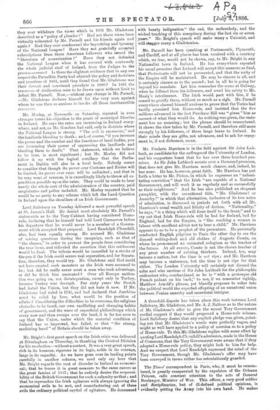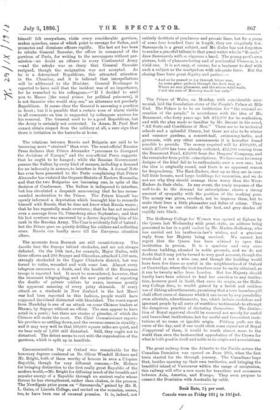The Times' correspondent in Paris, who, it must be remem-
bered, is greatly exasperated by the expulsion of the Orleans Princes, calls constant attention to the acts of General Boulanger, Minister of War. This officer, a very good soldier and disciplinarian, but of ill-defined political opinions, is evidently getting the Army into his own hand. He makes
himself felt everywhere, visits every considerable garrison, makes speeches, some of which point to revenge for Sedan, and promotes and dismisses officers rapidly. His last act has been to rebuke General Saussier, the officer in command of the garrison of Paris, for writing to the newspapers without per- mission—no doubt an offence in every Continental Army —and the rebuke was so sharp that General Saussier resigned, though the resignation was not accepted. As he is a determined Republican, this attracted attention in the Chamber, and it is believed that interpellations will be addressed to the Minister. General Boulanger is reported to have said that the incident was of no importance, for he remarked to his colleagues,—" If I decided to send you to Mazas [the usual prison for political prisoners], it is not Saussier who would stop me," an utterance not precisely Republican. It seems clear the General is assuming a position in front ; but it is possible that a certain tone of alarm visible in all comments on him is suggested by colleagues anxious for his removal. The General used to be a good Republican, but the Army is certainly not contented. In Anam, M. Paul Bert cannot obtain respect from the military at all, a sure sign that there is irritation in the barracks at home.



































 Previous page
Previous page